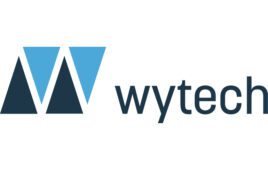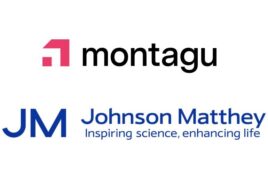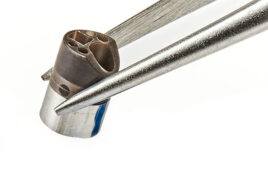Look for another strong year for medtech acquisitions in 2018 — and even potential bidding wars — predicts patent attorney David Dykeman.

[Image is public domain]
The wave of mergers and acquisitions in the medical device industry should continue this year, both in terms of value and volume, according to patent attorney David Dykeman.
“Many large medtech companies are sitting on cash that they want to put to work to build out product pipelines,” said Dykeman, co-chair of international law firm Greenberg Traurig’s global Life Sciences & Medical Technology Group.
The firm is gearing up to host its fifth Medtech Partnering Day, on March 27 at its Boston office, gathering top innovators, investors and leaders from across New England’s medical technology industry. Dykeman said the international law firm hosts the event as a service to the medtech community to connect potential M&A candidates to large medical device acquirers.
The fevered M&A market of recent years could get an additional boost from the U.S. tax reforms passed at the end of last year, he added, noting that for medtech, acquisitions are still the most viable way to return value to stakeholders.
“The number of medtech IPOs lags behind biotech, so M&A remains the most prominent exit path,” Dykeman said.
Top players in the device space are likely to consider traditional acquisitions in the cardio, orthopedics and diabetes spaces, but are also looking to digital health solutions to build an ecosystem of connected devices, he predicted.
“Companies that are behind in connectivity will be looking to make a splash in digital health, which could lead to premium pricing and possible bidding wars,” Dykeman said.
Representatives from Baxter and Medtronic will present at Medtech Partnering Day March 27 before conducting introductory meetings with early-stage companies in the afternoon. Past Medtech Partnering Days have featured industry giants including Boston Scientific, Johnson & Johnson, Sanofi, Zoll Medical, Philips and Smith & Nephew.
“Baxter and Medtronic are active M&A players who want to acquire innovative solutions, so this event is a terrific opportunity for early-stage medtech companies,” Dykeman said. Early-stage medtech companies can apply for the coveted one-on-one meeting slots until early March.
But just meeting with the medtech titans isn’t enough, he cautioned. Potential companies should be prepared to discuss their readiness.
“Companies will attract the most interest if they have an innovative solution for a large, unmet medical need, a strategic patent portfolio to block potential competitors, and have done everything they can to de-risk the technology, the path to market and the company for a potential buyer,” Dykeman said.
Another trend that will be discussed at Medtech Partnering Day is the rise of product liability litigation that could impact all medical device companies. Evan Holden, a litigator with Greenberg Traurig’s Atlanta office, is slated to present on the risks medtech companies face as product liability cases are increasingly consolidated into large multi-district litigations with hundreds or thousands of cases from across the country – and what they can do to avoid these costly litigations.
“The rise of multi-district product liability litigations should concern all medtech companies regardless of size or stage,” Holden said. “It is becoming more and more common for medtech companies to face these complex cases, which are costly to defend and carry significant risk.”




